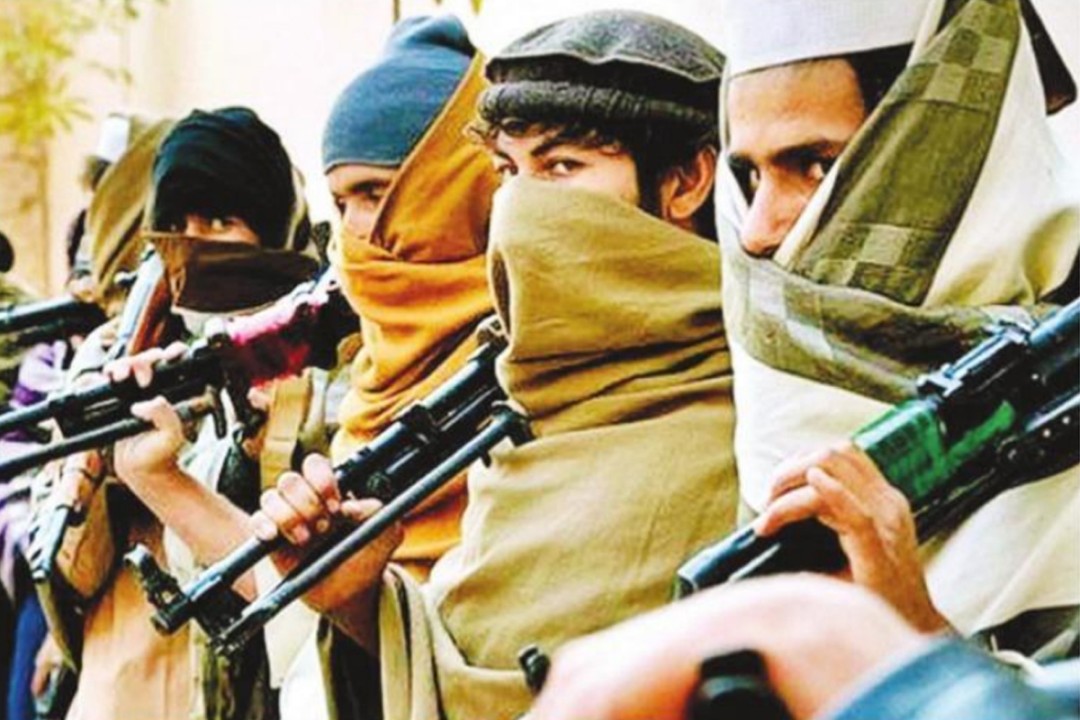Why Terrorism Persists in Pakistan: Unpacking the Social and Psychological Roots
Based on research published by the U.S. National Library of Medicine (NLM)

WASHINGTON D.C. – Since the events of 9/11, Pakistan has been thrust into the global spotlight as both a major battleground in the war against terrorism and, paradoxically, a nation frequently accused of harbouring extremist elements. While the devastating aftermath of terrorist attacks often makes headlines, the deeper social and psychological factors driving individuals towards violent radicalisation are less understood.
A significant research paper published in the U.S. National Library of Medicine's PubMed Central (PMC) database, titled "Terrorism in Pakistan: the psychosocial context and why it matters," sheds light on these crucial underlying issues. Authored by Asad Tamizuddin Nizami, Tariq Mahmood Hassan, Sadia Yasir, Mowaddat Hussain Rana, and Fareed Aslam Minhas, the study argues that understanding this psychosocial context is vital for finding lasting solutions.
(Acknowledgement: This news story is based on the findings and perspectives presented in the aforementioned research paper (PMCID: PMC6020923), made available by the U.S. National Library of Medicine.)
A Nation Bearing Heavy Costs
The authors note that terrorism has inflicted an enormous burden on Pakistan, devastating its social fabric, economy, and human lives, as highlighted in previous studies (Daraz et al., 2012). Yet, defining 'terrorism' itself remains a challenge globally, with the United Nations still lacking an internationally agreed-upon definition. The term is emotionally charged, particularly in Muslim-majority countries post-9/11, often unfairly linked solely to extremist groups claiming Islamic motives. Pakistan finds itself in the complex position of being a key ally in the international war on terror while simultaneously facing accusations of sponsoring it.
Historical Wounds and Social Pressures
The paper emphasizes that Pakistan's vulnerability to extremism is rooted in its history and social conditions:
- Founding Trauma: The nation's birth in 1947 involved the trauma of partition, mass migration, and horrific violence, leaving deep scars. Political instability and the violent separation of East Pakistan (now Bangladesh) in 1971 further hampered stability.
- Soviet-Afghan War (1979 onwards): This conflict transformed Pakistani society, fostering violence and weaponization, leading to the infamous 'Kalashnikov culture' and 'Talibanisation'.
- Social Vulnerabilities: Widespread issues like illiteracy, poverty, lack of security, and perceived injustice create what the paper calls a "fertile ground" for extremist ideologies to take hold.
The Psychology of Radicalisation
Moving beyond simplistic labels, the research delves into the psychological journey towards terrorism:
- Complex Process: Becoming a terrorist isn't a sudden decision but involves a "complex process of cognitive accommodation and assimilation." It's rarely a case of simple madness or psychopathy (Atran, 2003; Horgan, 2008).
- Quest for Significance: Motivation often involves a deep search for personal meaning and significance.
- 'Us vs. Them' Mindset: Terrorists often adopt a stark "black-and-white" view of the world ('I am good, you are evil'), making it easier to commit violence without remorse.
- Revenge Culture: Events perceived as unjust aggressions, like civilian casualties from drone strikes, can trigger deep-seated desires for revenge, sometimes spanning generations.
- Exploitation of Ideology: Extremist groups aggressively exploit concepts like self-sacrifice and martyrdom, grooming vulnerable individuals (especially adolescents) through brainwashing. They promise divine rewards and often provide financial compensation to the families of suicide bombers. The paper cites research suggesting young recruits can be turned into suicide bombers within weeks (Nizami et al., 2014).
Madrassas, Mental Health, and Modern Radicalisation
The paper also addresses common perceptions and complexities:
- Madrassas (Religious Schools): While often portrayed negatively in the West, research suggests only a minority actively promote extremism (Bano, 2007). Many families choose them for affordable Islamic education, food, and lodging (Cockcroft et al., 2009). Although some seminaries have been implicated as recruitment centres, many terrorists involved in major attacks did not attend madrassas (Bergen & Pandey, 2006).
- Internet's Role: Experts agree the internet now plays a significant role in radicalisation and self-recruitment, with jihadi websites targeting potential recruits' vulnerabilities (Kruglanski & Fishman, 2009).
- Mental Health Link: While widespread stress, anxiety, and depression result from terrorism's impact, the research does not establish a direct causal link between pre-existing mental disorders and engaging in terrorism, apart from isolated cases. However, individuals with milder issues like depression might be more susceptible targets for gradual psychological grooming.
Finding a Way Forward
The authors conclude that truly combating terrorism in Pakistan requires moving beyond immediate security responses to understand and address these deep-rooted psychosocial factors. Lasting peace, they argue, depends on concerted efforts to counteract revenge cycles, prevent the brainwashing of youth, address social grievances, and heal the profound psychological scars left by decades of violence. Understanding the 'why' behind the violence is essential to stopping it.




![From Kathmandu to the World: How Excel Students Are Winning Big [Admission Open]](https://nepalaaja.com/img/70194/medium/excel-college-info-eng-nep-2342.jpg)


